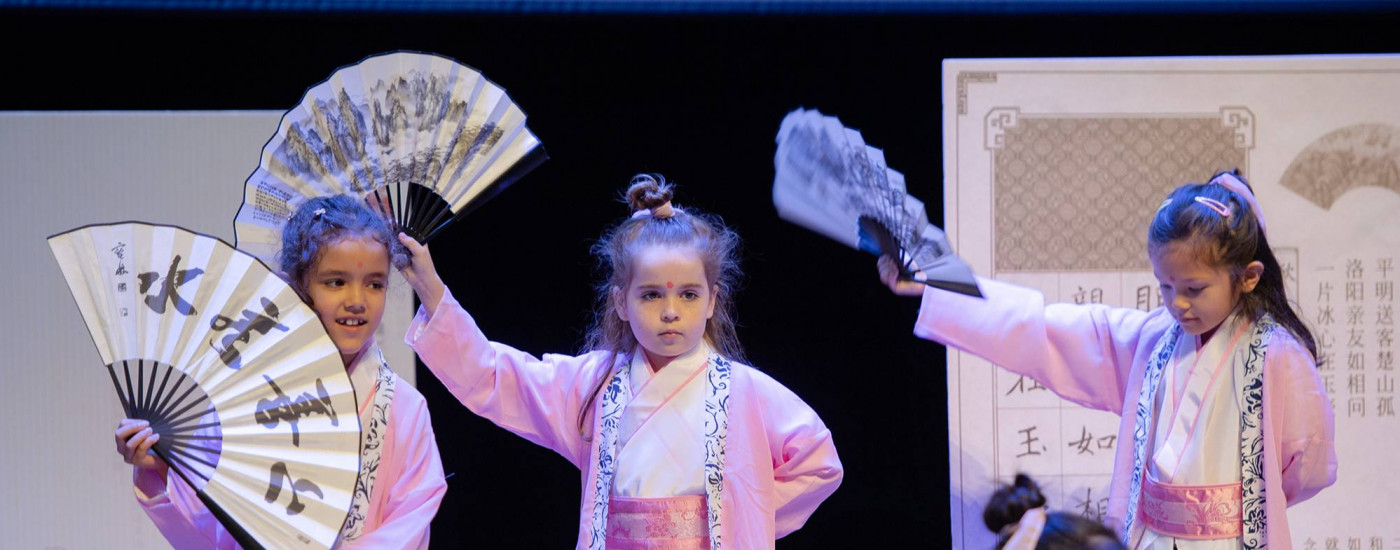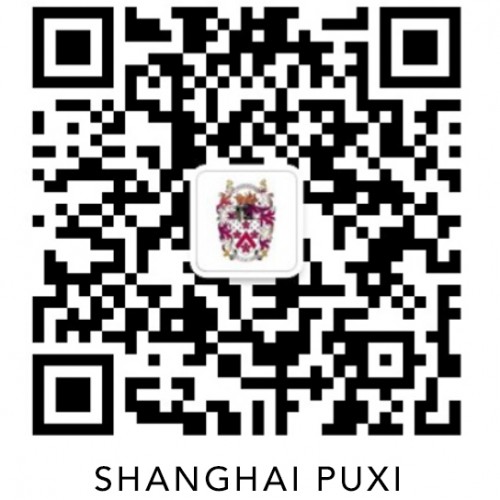The Importance of Celebrating Our Local Context

Here at Dulwich College Shanghai Puxi, we believe strongly in the value of celebrating our local context, as evidenced by our wide range of cultural celebrations throughout the year. Below, Rebecca Zhao, Head of Primary Mandarin, outlines the importance developing a rich cultural understanding in our students.
One of China's traditional festivals, Mid-Autumn Festival, is upon us again this year. In our spacious theater, the staff and students of Dulwich College Shanghai Puxi celebrated the festival with wonderful performances: all livestreamed to our broader community.
Since the opening of the first Dulwich College International school in Shanghai in 2003, the family of schools has continued to develop in China and other parts of Asia, generating a large body of talented global citizens who go on to further education across the globe. Dulwich College Shanghai Puxi shares the vision of helping our students Graduate Worldwise, with a strong element of this grounded in knowing and appreciating the culture of our host country, China. Through celebrations such as Mid-Autumn Festival, Chinese New Year, the Lantern Festival as well as residential trips, excursions and tours, we provide students with opportunities to understand Chinese traditional culture and customs, laying a solid foundation for their “international mindedness.”
Why do we do this?
China is one of the four ancient civilizations in the world, with a splendid history and culture of more than 5,000 years. This rich history provides many lessons worthy of our appreciation. China is geographically significant, vast and varied, with abundant resources. That geographical vastness has led to ethnic variety, with 56 minority nationalities, distinct in their customs and traditions. In Dulwich College Shanghai Puxi, the teachers work alongside the students to explore these unique characteristics. From Year 3 students performing Peking Opera, to the sonorous and powerful bamboo dance of the Year 5 students; from the Year 2 students using their cute voices to interpret the "Sanzi Jing", to the Year 9 students beautifully reciting "When will the moon be?" - Dulwich College Shanghai Puxi has always believed that since we are located in China, deeply understanding China should be one of the fundamental lenses through students can view and understand the world.
Many of our students, while coming from around the world and bringing with them rich life experiences, are ethnically Chinese. We celebrate this and understand that for them Mandarin is their mother tongue, and the local context for them is their mother culture. For these students, celebrating Chinese history and culture takes on special significance, as it nourishes their sense of self and ensures that regardless of where their learning journey will take them, they are confident and knowledgeable about their roots. This positive sense of identity then supports them to explore other languages and cultures. For students whose native language is not Chinese, understanding the local context is equally powerful. As German philosopher Humboldt stated, "every language contains a unique worldview". For these students, learning Mandarin and understanding Chinese culture, customs, history and norms will open a window for the students, which will help them to know the world better.
How do we do it?
Close contact with the local community is integrated into our curriculum. Shanghai is one of the most developed economic and educational centers in China, and as such there are numerous museums for students to visit and explore. The botanical gardens, zoos and farms with beautiful environments and outstanding educational functions are excellent places for students to understand the local ecology and experience authentic Shanghai. We always try to make full use of our geographical advantages to provide students with a rich curriculum that integrates the local context.
The annual Mid-Autumn Festival and Spring Festival celebrations are highlights of the Dulwich College Shanghai Puxi calendar. In addition to experiencing traditional cultural activities such as making lanterns, mooncakes, dumplings, guessing lantern riddles, dancing Chinese dances and so on, we also invite the community to contribute to the richness of our Chinese celebrations. Parents have in the past gathered to showcase their Chinese cooking skills and have presented a feast of Chinese cuisine to the teachers and students during the Spring Festival.
Our local context also provides opportunity for reflection. At the annual Eco Camp students from our Dulwich College family of schools learned about pH levels, then tested the water quality of the river at the entrance of the school, finding it to be at “healthy” rating. The Year 11 students studied ancient Chinese clothing, food, housing and transportation, then compared these with modern day and reflected on current social issues. In addition, Dulwich College Shanghai Puxi students have established contact with a local school of migrant children and donated gift bags to support them. They also helped sell the handicrafts made by the Hearts and Hands organisation in Sichuan so that the disabled and disadvantaged who work with the organization could continue their work.
We hope that by embedding the local context into our curriculum, our students will be able to understand many facets of China, encouraging them to become sympathetic learners who Make a Difference. Whether viewing China through the lense of understanding their native culture or learning Mandarin as second language and understanding the culture of their host country, we firmly believe that celebrating, understanding and reflecting on the local context will help our students to Graduate Worldwise.
What can you do?
- Encourage your children to read Chinese books or Chinese-culture related book.
- Take them to the local bookstores and museums.
- Actively take your children to participate in some community activities, so that they can experience different aspects of the local community.
- Have a discussion with your children, asking them questions such as “what do you see?”, “what do you think?”, and “what are your questions?”, especially during major Chinese festivals and holidays.
- Learn about Chinese culture and history, talk to your children about famous Chinese historical figures or historical stories, and ask your children what they think of them.





